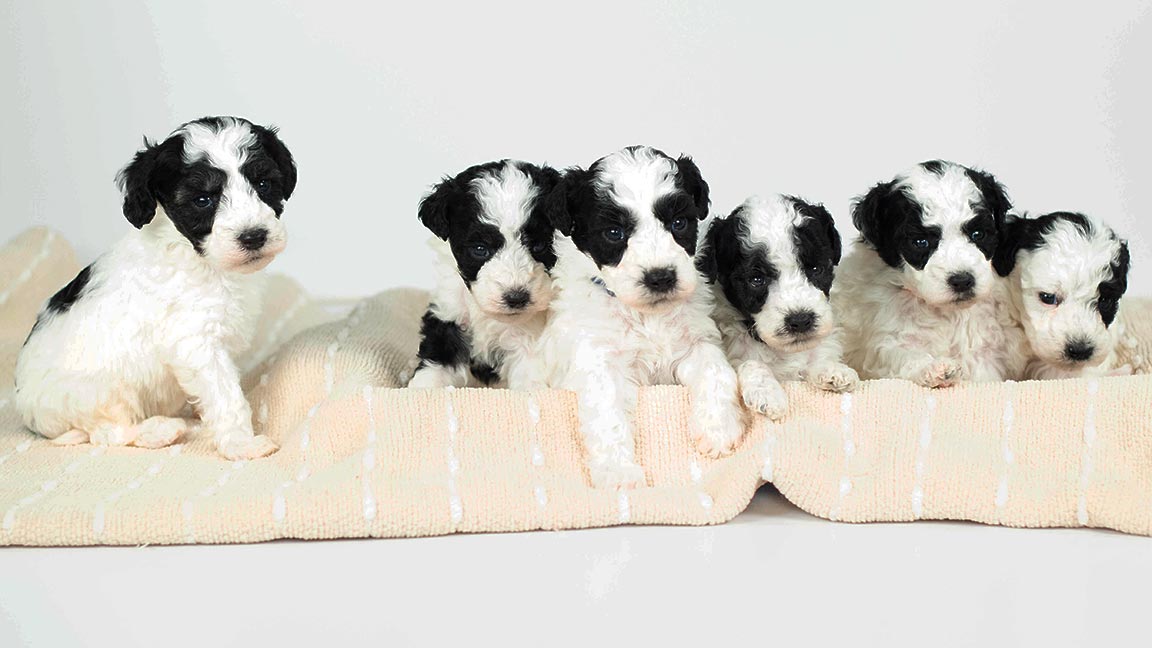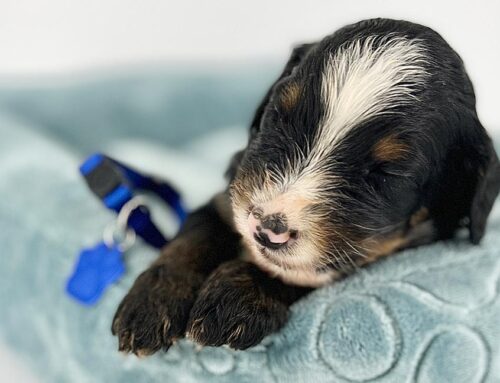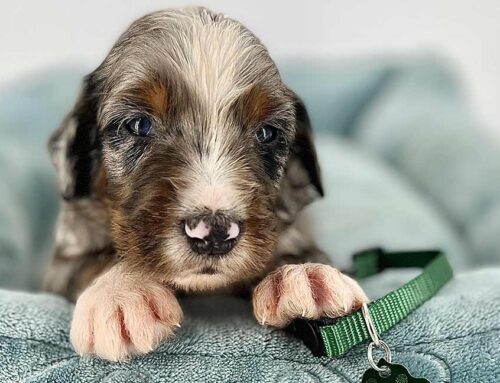Puppy Socialization 101
Puppy Socialization
Puppy socialization is one of the most important parts of raising a healthy, well-adjusted dog. The experiences your puppy has in their first few months of life shape their personality and behavior for years to come. Socialization is more than just playing with other dogs; it means gently introducing your pup to new sights, sounds, textures, people, and environments so they learn the world is a safe and exciting place.
At Double U Doodles, we’ve seen firsthand how proper socialization creates confident, happy Bernedoodles and Sheepadoodles who adapt easily to family life. This article will help you understand why puppy socialization matters, when to start, and how to do it right.
What is Puppy Socialization?
Puppy socialization is the process of teaching your puppy how to navigate the world. Puppies go through a critical learning window from 3 to 16 weeks of age when their brains are especially open to new experiences. What they encounter during this time will affect how they respond to similar situations as adults.
A well-socialized puppy learns that the vacuum cleaner is not scary, that strangers can be friends, and that car rides can be fun. Without socialization, puppies are more likely to become anxious or reactive in unfamiliar settings.
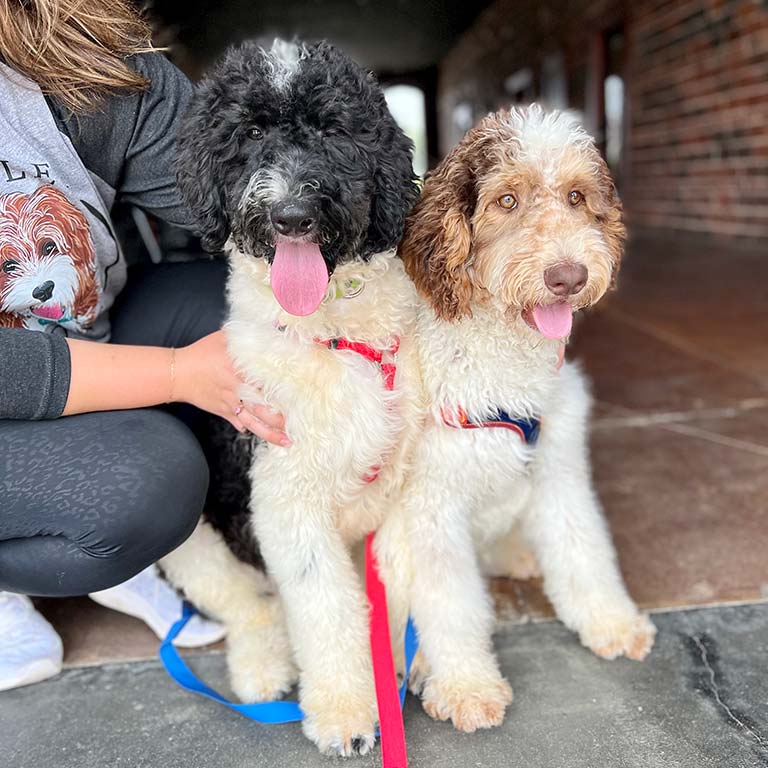
Why Early Socialization is So Important
The benefits of puppy socialization go far beyond having a friendly dog. It helps your puppy:
- Build confidence in new environments
- Develop resilience to stress
- Learn how to interact safely with people and other animals
- Prevent fear-based behavior problems in adulthood
- Strengthen the bond between you and your puppy
Think of socialization as your puppy’s emotional education. Just as children need school to learn, puppies need early exposure to build good habits and coping skills.
How to Socialize Your Puppy at Home
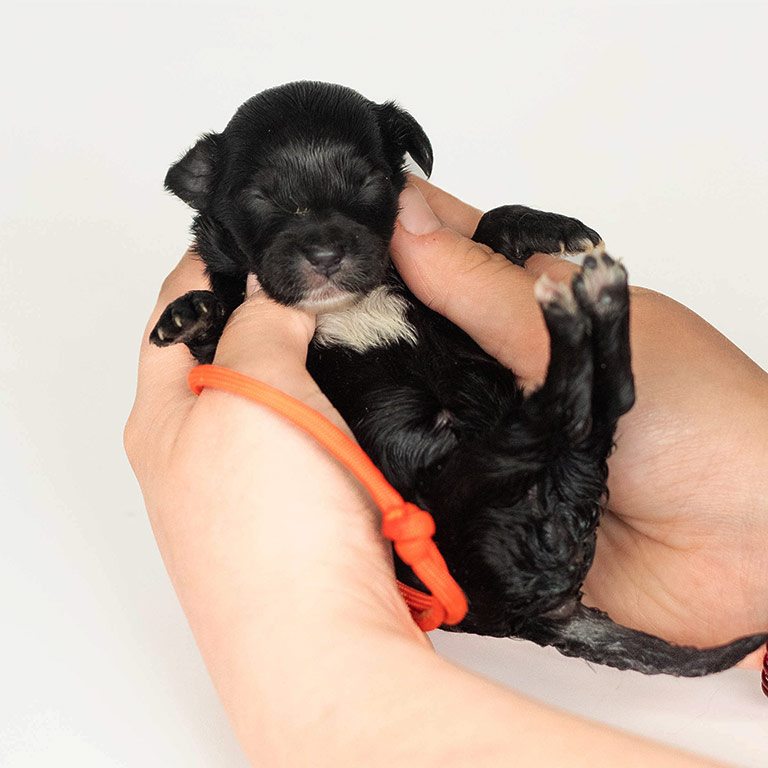 Families often ask what practical steps they can take once they bring their new doodle home. The good news is that socialization can be fun and straightforward when you approach it thoughtfully. Here are some ideas:
Families often ask what practical steps they can take once they bring their new doodle home. The good news is that socialization can be fun and straightforward when you approach it thoughtfully. Here are some ideas:
- New surfaces: Walk your puppy on grass, gravel, carpet, sand, or tile.
- Everyday sounds: Play recordings of thunderstorms, fireworks, or city noises while offering treats.
- Different people: Invite friends of various ages and appearances to meet your puppy.
- Handling practice: Gently touch their paws, ears, and tail to prepare them for vet visits and grooming.
- Safe outings: Carry your puppy into stores that allow dogs, ride in the car, or visit pet-friendly parks once vaccinations are complete.
The key is to make each new experience positive. Use praise, treats, and a calm voice to reassure your pup. Never force them into something overwhelming; small, positive steps are best.
What We’ve Learned From Experience
As ethical breeders, we have the privilege of guiding puppies through these first stages of life every day. We’ve seen timid pups gain confidence just by walking on new textures like grass or mulch. We’ve watched litters settle calmly into crates because we introduced them early and gently. Families often tell us their new doodle slept peacefully their very first night at home, a direct result of thoughtful early socialization.
We’ve also noticed how puppies exposed to everyday household sounds adjust more easily. The hum of the vacuum or the clang of pots and pans doesn’t rattle them because they’ve already learned those noises are normal. These little steps make a big difference in creating a dog who feels at ease in your home.
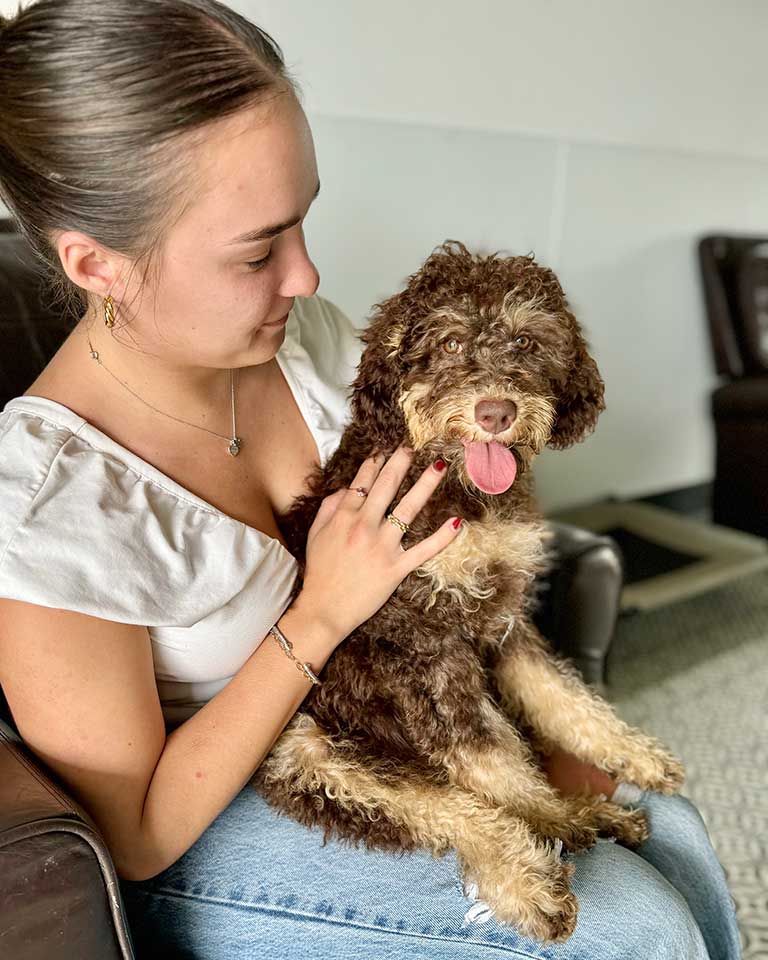
How Our Program Supports Socialization
At Double U Doodles, we start puppy socialization from birth through a structured curriculum. Puppies are gently handled, exposed to sounds and textures, introduced to crate time, and even begin early potty training. By the time they go home, they already have a solid foundation.
For families who want extra support, we also offer our Checkpoint Puppy Training Program. This program extends socialization into real-world settings like public parks and stores while continuing crate, potty, and obedience training. It gives your puppy more confidence and gives you peace of mind knowing the most challenging work is already done.
While our program is designed to make life easier, we always encourage families to continue socialization at home. No program replaces the daily experiences your puppy will have with you, and every new moment you share becomes part of their learning.
Final Thoughts on Puppy Socialization
Puppy socialization is not just a step in training, it’s the foundation for a lifetime of confidence, safety, and joy. The time and effort you put into introducing your puppy to the world will reward you with a well-behaved, happy companion.
At Double U Doodles, we believe that raising puppies with intention, love, and proper socialization is what makes all the difference. Whether you take advantage of our training program or guide your puppy yourself, know that these early weeks are precious and powerful.
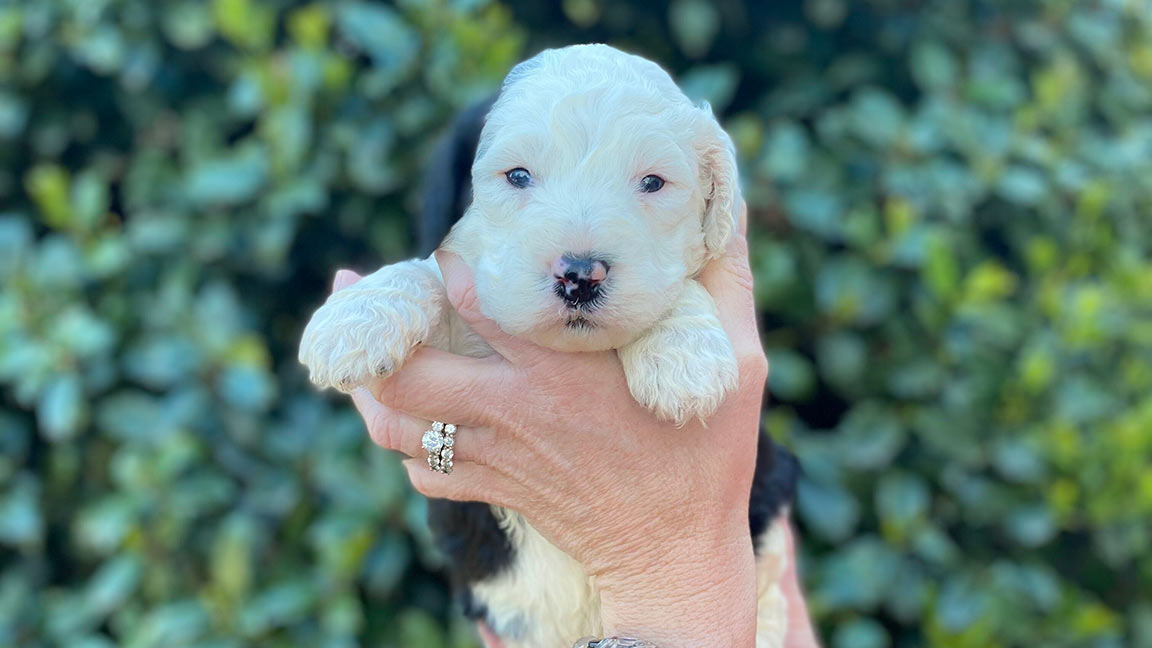
Frequently Asked Questions About Puppy Socialization
When should I start socializing my puppy?
Socialization begins at just a few days old with gentle handling and continues through at least 16 weeks.
Can I socialize my puppy before they are fully vaccinated?
Yes, but with caution. Expose them to safe people, places, and vaccinated dogs. Avoid dog parks until vaccinations are complete.
How do I know if my puppy is overwhelmed?
Watch for signs like tucked tails, hiding, yawning, or excessive licking. If you see these, slow down and give your puppy more space.
What if my puppy seems shy?
Go at their pace. Use extra praise and treats, and never force them into interactions. Gentle consistency works wonders.
Do doodles need extra socialization?
Bernedoodles and Sheepadoodles are naturally social, but because they are intelligent and sensitive, consistent socialization helps them thrive.

